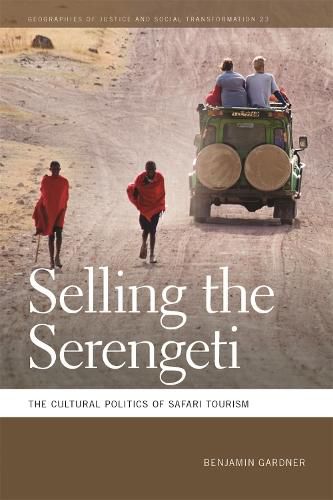Readings Newsletter
Become a Readings Member to make your shopping experience even easier.
Sign in or sign up for free!
You’re not far away from qualifying for FREE standard shipping within Australia
You’ve qualified for FREE standard shipping within Australia
The cart is loading…






Situating safari tourism within the discourses and practices of development, Selling the Serengeti examines the relationship between the Maasai people of northern Tanzania and the extraordinary influence of foreign-owned ecotourism and big game-hunting companies. It looks at two major discourses and policies surrounding biodiversity conservation, the championing of community-based conservation and the neoliberal focus on private investment in tourism, and their profound effect on Maasai culture and livelihoods. This ethnographic study explores how these changing social and economic relationships and forces remake the terms through which state institutions and local people engage with foreign investors, communities, and their own territories. The book highlights how these new tourism arrangements change the shape and meaning of the nation-state and the village and in the process remake cultural belonging and citizenship.
Benjamin Gardner’s experiences in Tanzania began during a study abroad tripin 1991. His stay led to a relationship with the nation and the Maasai people in Loliondo lasting almost twenty years; it also marked the beginning of his analysis and ethnographic research into social movements, market-led conservation, and neoliberal development around the Serengeti.
$9.00 standard shipping within Australia
FREE standard shipping within Australia for orders over $100.00
Express & International shipping calculated at checkout
Situating safari tourism within the discourses and practices of development, Selling the Serengeti examines the relationship between the Maasai people of northern Tanzania and the extraordinary influence of foreign-owned ecotourism and big game-hunting companies. It looks at two major discourses and policies surrounding biodiversity conservation, the championing of community-based conservation and the neoliberal focus on private investment in tourism, and their profound effect on Maasai culture and livelihoods. This ethnographic study explores how these changing social and economic relationships and forces remake the terms through which state institutions and local people engage with foreign investors, communities, and their own territories. The book highlights how these new tourism arrangements change the shape and meaning of the nation-state and the village and in the process remake cultural belonging and citizenship.
Benjamin Gardner’s experiences in Tanzania began during a study abroad tripin 1991. His stay led to a relationship with the nation and the Maasai people in Loliondo lasting almost twenty years; it also marked the beginning of his analysis and ethnographic research into social movements, market-led conservation, and neoliberal development around the Serengeti.